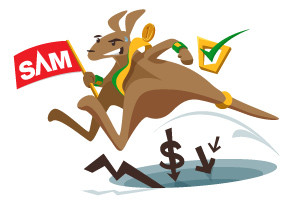Trade Promotions: Potential Pitfalls & A Checklist for Australian Promoters
Trade Sales promotions, also known as competitions, sweepstakes, or giveaways, offer an effective way to promote goods and services to consumers.
A trade promotion generally falls into one of two categories:
- A Test of Skill: Where skill determines the winner(s). For instance, requiring each entrant to “describe their ideal 2-week vacation in 25 words or less,” where the most creative response wins.
- A Game of Chance: Winners are determined by chance, such as through a random draw.
Whether a promotion is run at a national or a more localised level, it must comply with the laws of every state and territory in which it is conducted.
Additionally, other areas of Australian law (such as consumer protection law and advertising law, including applicable advertising codes) will apply regardless of whether the promotion is skill-based or chance-based.
When planning a trade promotion, numerous legal issues must be considered - no matter how big or small the promotion is.
Potential Pitfalls
Failing to address Trade Sales Promotion regulations and other legalities can lead to:
- Lengthy Delays / Loss of Sales Revenue: As a result of extended correspondence with gaming regulators to obtain a permit for the promotion.
- Enforcement Actions: Legal consequences from breaches of applicable trade promotion legislation.
- Consumer Protection Issues: Unwanted scrutiny from consumer protection authorities.
- Third-Party Relationships: Damage to relationships with third parties involved in the promotion, such as prize suppliers or social media platforms.
- Reputational Damage: Negative impacts on the promoter’s reputation and brand image from a public relations perspective.
Trade Promotions Checklist for Australian Promoters
Although Trade Promotions might seem like a simple and cost-effective marketing tool, promoters should apply the same level of diligence to legal compliance as they would for any other major marketing or advertising activities.
To assist promoters, we have prepared the following checklist to help identify and address potential issues.
Terms and Conditions
- Comprehensive Terms and Conditions: Do you have detailed Terms and Conditions (T&Cs) outlining how the trade promotion will operate? T&Cs are required for Chance Trade Promotions under State/Territory legislation and are necessary for compliance with consumer law applicable to all trade promotions.
- Contractual Obligations: These T&Cs represent the contract between your business and each entrant. Have you given the same level of care to drafting these T&Cs as you would for other marketing efforts?
- Jurisdictional Requirements: Are you familiar with and have you addressed the specific requirements of each State/Territory where your trade promotion will occur? In cases of overlapping requirements from different jurisdictions, have you adopted the most stringent requirements in your T&Cs?
Game of Skill or Game of Chance?
- Classification: Have you verified whether your trade promotion is classified as a Chance Trade Promotion or a Skill Trade Promotion? Different jurisdictions may classify the same promotion differently, affecting whether a permit is required.
- Permits: Have you considered how slight adjustments to your promotion could help avoid regulatory issues? Misclassification may lead to unnecessary permit applications or regulatory challenges.
Permits
- Permit Requirements: Do you need a permit? Subject to the value of your prize pool a Chance Trade Promotion may require a permit in New South Wales, South Australia, and the ACT.
- Planning Ahead: Are you aware that obtaining a permit can take up to 28 days in some instances? The regulatory perspective is that your promotion is just one of many applications. Your perspective should be to secure the permit as quickly as possible for timely advertising.
- Amendments: Once a permit is issued, any changes to the T&Cs require regulatory approval, including completing an amendment form, paying a fee, and updating the T&Cs.
Advertising & Communication
- Advertising Requirements: Are you aware of the advertising requirements for each State and Territory? How will you manage these requirements within your commercial objectives?
- Compliance with Advertising Laws: Are you familiar with the advertising laws and codes applicable to the promoted goods/services?
- Intellectual Property: If you do not own the IP related to the prizes, do you have permission to use it in advertisements?
Prizes
- Legal and Manufacturer Restrictions: Are there legal or manufacturer-imposed restrictions on offering the prizes?
- Third-Party Agreements: If a third party provides the prize, do you have an agreement in place? Who is responsible if the prize is faulty or causes harm?
Social Media
- Platform Permissions: If your trade promotion involves social media, have you reviewed the platform's terms of use and policies? For example, if your promotion requires entrants to upload, photographs or play a game on a social media platform, this must be outlined in the T&C’s.
- Platform Conditions: Do you understand the conditions imposed by the social media platform(s) that you plan to use? For example, Facebook requires that the T&Cs include a statement that the promotion is not sponsored, endorsed, or administered by Facebook.
By addressing these issues with the thoroughness they require, you can help ensure that your trade promotion is both legally compliant and successful.
For more information or assistance with trade promotion compliance, contact:
Peter McKinnon - 03 9646 5644 / peter@samsales.com.au
Please note: SAM do not consult on raffles or ‘pay to enter’ style promotions - or promotions seeking to subvert state or federal guidelines. And, due to state government specific policies and regulations, SAM cannot assist Promoters that plan to offer Bitcoin and other Cryptocurrencies as prizes.
